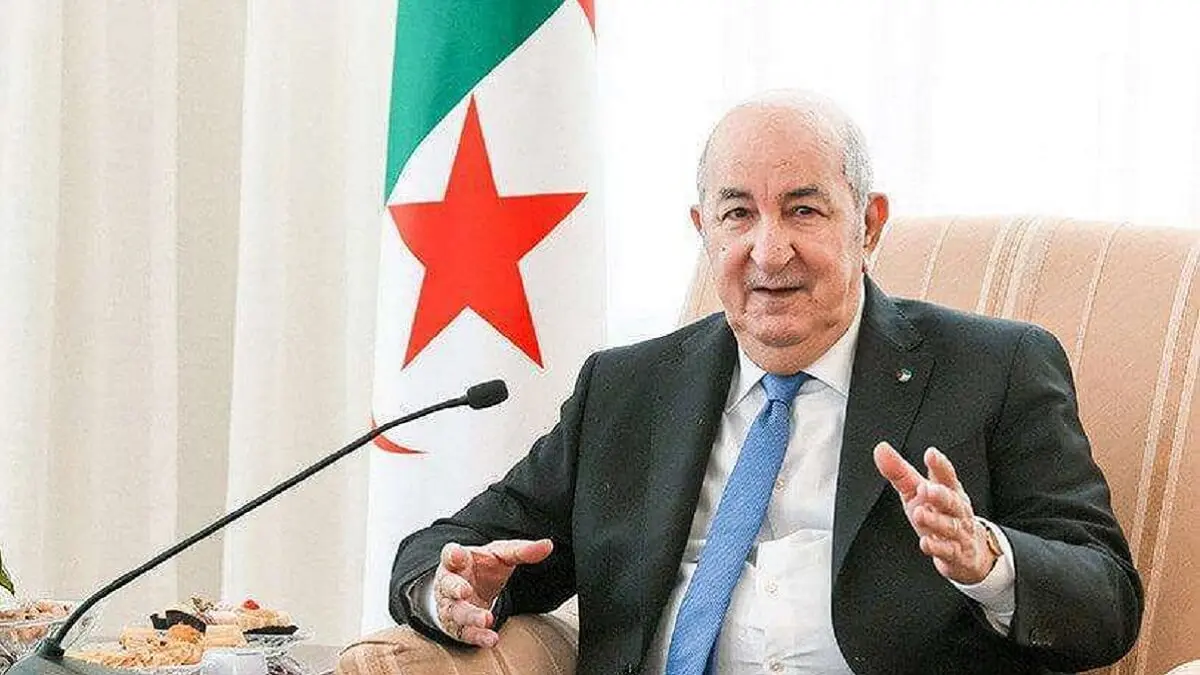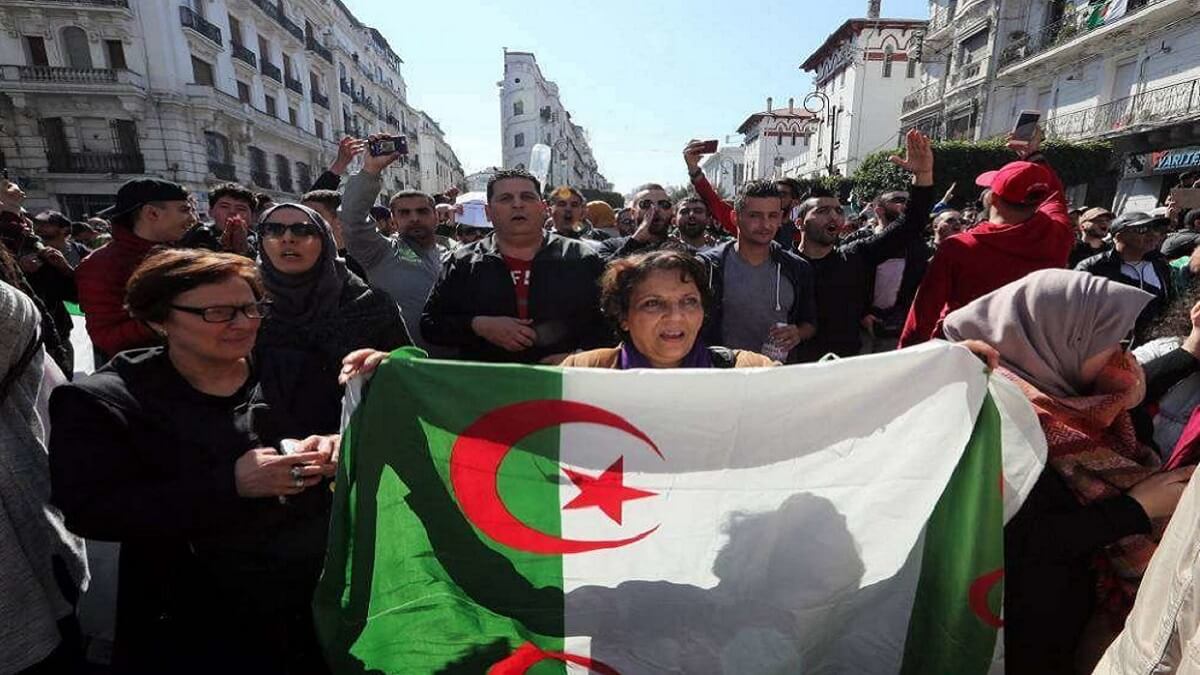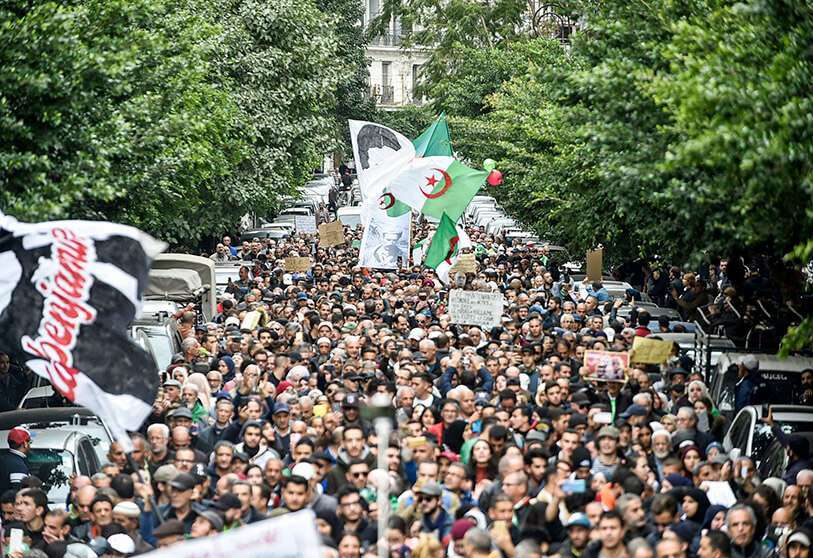Tizi-Ouzou: Tebboune's perilous journey

The visit to Kabyle country being prepared by the intelligence services and police is perceived by MAK activists as "a real provocation for which the Algerian authorities must assume the consequences". The hostility of the Kabyle people to the Algerian regime, and particularly to the Tebboune-Chengriha duo, is no secret. No better proof can be cited than the total boycott of the 2019 presidential elections. Not a single polling station was opened, and not a single ballot was cast. Even the civil and military authorities were not allowed to take part in the electoral joust by the people who took to the streets en masse. "Zero votes to meet the zero kabyles objective of the Islamo-baathists who gravitate to power.
To set foot in a region considered to be the inextinguishable bastion of opposition to the ruling power reflects the recklessness of the advisors surrounding President Tebboune. A region still reeling from the death sentence handed down to 38 innocent young people from the town of Larba Nath Irathen. The imprisonment of these young people, accused of a crime that everyone agrees is the work of the security services and the police, continues to be a daily reminder of the injustice suffered by Kabylia. Last Thursday, the population of this town and its surrounding areas observed their third consecutive Thursday of general protest. This Thursday, other towns will join the strike movement, which consists of lowering shop curtains and boycotting workplaces in public and private administration. No one is leaving their homes. All day long.
Kabylia, a history punctuated by revolts
After four years in the presidential palace at El-Mouradia without a single visit to the country, Abdelmadjid Tebboune has finally shown his face outside the palace. He began with an outing to Djelfa on October 29, followed by another to Tindouf a month later, on November 30. Two visits to two peaceful towns where no popular uprising has ever been recorded. Tindouf is practically a garrison town. There are more soldiers than civilians. Virtually abandoned to the Polisario. Even its airport has been turned into a military base. It's safe to say that Tebboune didn't run any risks by visiting Tindouf. This is not the case in Kabylia, known as a rebellious region since the dawn of time.

Popular revolts over the centuries are well known, the most famous of which was led by a woman, Lalla Fatma N'Soumer, figurehead of the Algerian resistance movement during the early years of the French conquest of Algeria. From 1854 to July 1857, she led a merciless resistance against the French, until her capture. She died in prison six years later.
Kabylia is also the cradle, along with the Aurès, of the armed revolution of November 1954, which led to Algeria's liberation from colonial rule. It's also the citadel of the fight for Amazigh identity. This struggle was ignited in April 1980 when the late Mouloud Mammeri, an icon of Berber culture, was banned from giving a lecture at the University of Tizi-Ouzou. It was the Berber Spring. The Algerian government had finally recognized that Amazighity (Berberity) was part of the Algerian identity. This recognition came at a high price for many activists, who were arrested, imprisoned and tortured.
Fourteen years later, Kabylia was once again on the warpath. In 1994, the Mouvement Culturel Berbère (MCB) called for a "schoolbag strike" to ensure that the Tamazigh language was taught in schools. When the authorities refused, Kabylia held firm, sacrificing a school year so that Tamazight could finally be taught in schools, and later recognized as an official language in the 2016 constitution.
In 2001, Kabylia was once again in revolt. The murder of a young teenager, Massinissa Guermah, in a Gendarmerie brigade in Ath-Douala set the whole of Kabylia ablaze. As in 1980, the outburst even reached Algiers. More than 150 young people were killed by the murderous bullets of a bloodthirsty power that would stop at nothing to perpetuate itself. And Kabylia remained indomitable, chanting loud and clear "you can kill us, we're already dead", in the face of the large number of victims of the ruling power's repression.
And it's not over yet. The spark that ignited the February 2019 hirak began in Kherrata, a small village in Little Kabylia, in the wilaya of Bejaïa. The town made Algerian history on May 8, 1945, when, along with Guelma and Sétif, it was the scene of the bloodiest anti-colonial demonstration in the country's history. 45,000 dead, an unknown number injured and 4,500 detained.

Following on from the February 2019 hirak, Kabylia will mark Algeria's history by rejecting electoral fraud in the December 2019 presidential elections. The entire Kabyle people took to the streets to peacefully prevent the opening of polling stations, without clashes or violence. The Kabyle people will not be fooled by the appointment of a candidate with no grassroots base, who has his sights set on the El-Mouradia palace, only to arrive on board a tank driven underground by generals who lack the courage to assume their responsibilities.
Intimidation and corruption
On December 23, this same candidate, now President of the Republic, intends to challenge the Kabyles, not to say provoke them. He believes he will bribe them by inaugurating a soccer stadium which has been delayed for several months and whose construction time and cost have beaten all world records. The stadium will be used by JS Kabylie, the country's most successful club, with 8 national championship titles, 5 Algerian Cups, a League Cup, an Algerian Super Cup and, above all, two African Champion Clubs' titles and 6 CAF Cups.
After the first 3 years of Tebboune's mandate, when the whole of Kabylia was punished for its boycott of the December 209 presidential election, JSK was the object of a charm operation which began with the national telephone operator MOBILIS taking over the club. A takeover in the form of a transfer of the club to the public company, which put in colossal financial resources to ensure a long-delayed revival. In addition to this rescue operation, the new stadium will be the Kabyle club's stronghold. But is this enough to make us forget the punishment meted out to the region by Bouteflika and Tebboune?
Since the special program of the '70s, which provided the region with an infrastructure to match the population's aspirations, with the opening of a university, an industrial hub that specialized Kabylia in the electronics industry, an Olympic stadium, roads and housing, Kabylia has not benefited from any economic investment to stem the tide of unemployment, which has taken disproportionate measures, and to cope with the misery that is plain to see in all the region's towns and villages.
The absence of development programs has been compounded by the deadly fires that have decimated fruit trees, livestock and all the olive-growing wealth that used to be the pride of Kabylia.

To make matters worse, an unprecedented crackdown was unleashed on a population that had been humiliated if not tamed. Arrests were legion. Membership of the MAK, a pacifist movement calling for a referendum on self-determination, became a crime. This same MAK is classified as a terrorist movement, without the slightest violent action being taken against it. A classification that serves as an alibi for increasing arrests and intimidating everything that breathes Kabyle.
In fact, in preparation for Tebboune's visit to Tizi-Ouzou on December 23, the police and the DGSI are hinting at a wave of arrests of citizens under the pretext of aborting an assassination attempt on the President. A kind of intimidation to ward off any demonstration, however peaceful, against the visit to Tizi-Ouzou of the tenant of the El-Mouradia palace.
To balance the intimidation, the wali (prefect) of Tizi-Ouzou summoned all the daïra chiefs (sub-prefects) to ask them to bring together all the mayors in their respective districts. The mayors face stiff competition for a senatorial seat. This seat will be awarded to the mayor who brings the most citizens to the town's Maison de la Culture hall, where Tebboune will deliver a speech.
It's a cocktail of intimidation and corruption that will be served up to the Kabyles for the perilous journey that Tebboune intends to make to erase, like a challenge, the historic boycott of the presidential election that made him the president of an Algeria amputated from Kabylia.
This is yet another argument that the MAK has not failed to exploit in order to strike numerous blows on the international stage against a regime that no longer knows where to turn. Will Tebboune succeed in his bid to tame Kabylia and bring it back into line? Let's wait until December 23.









